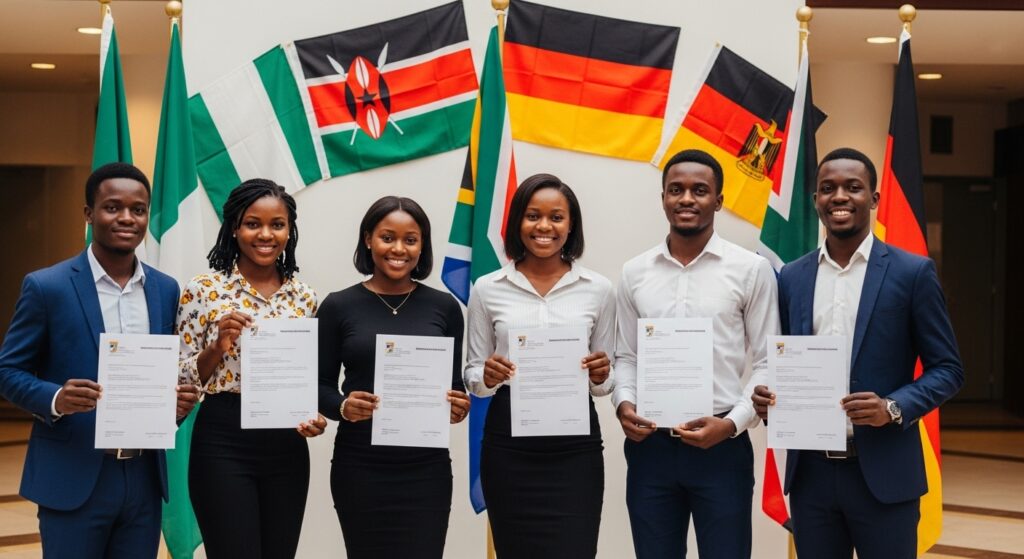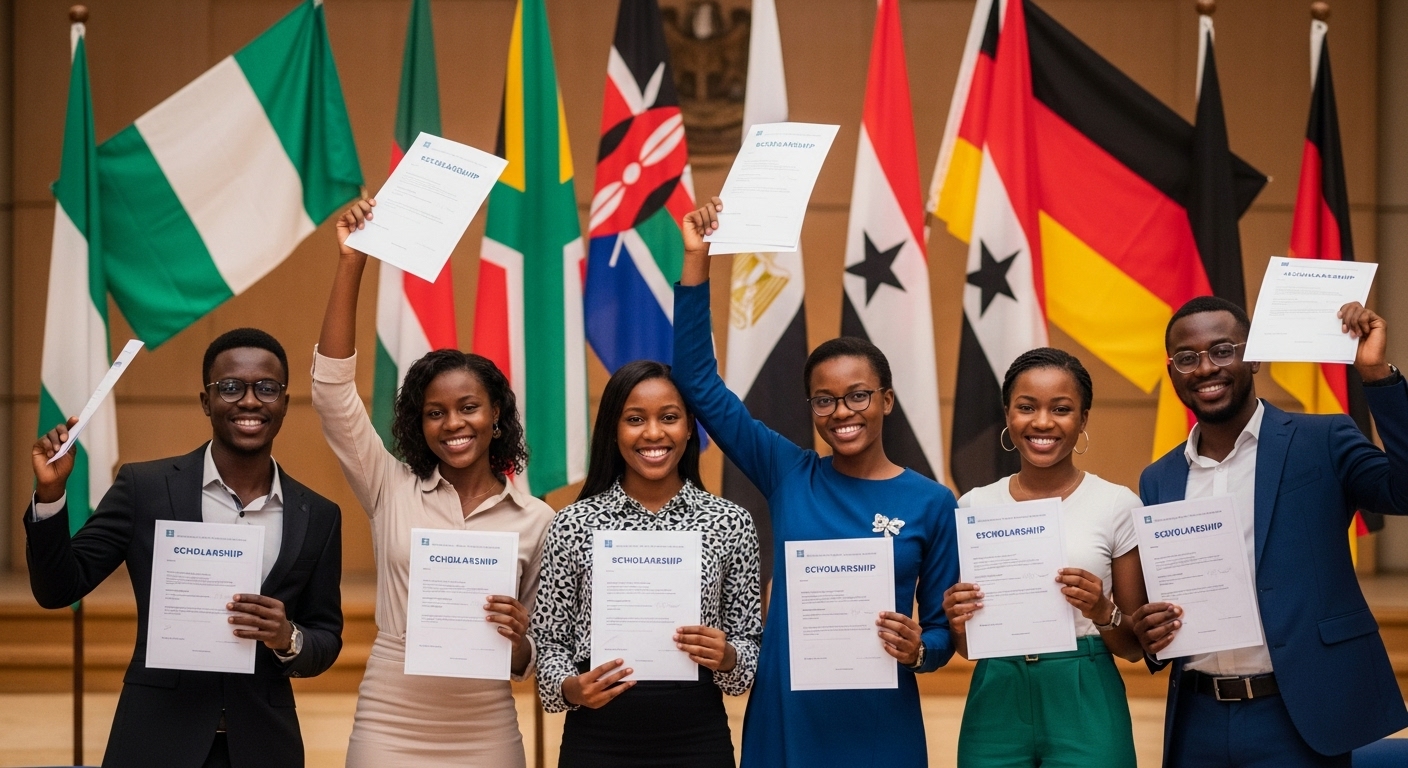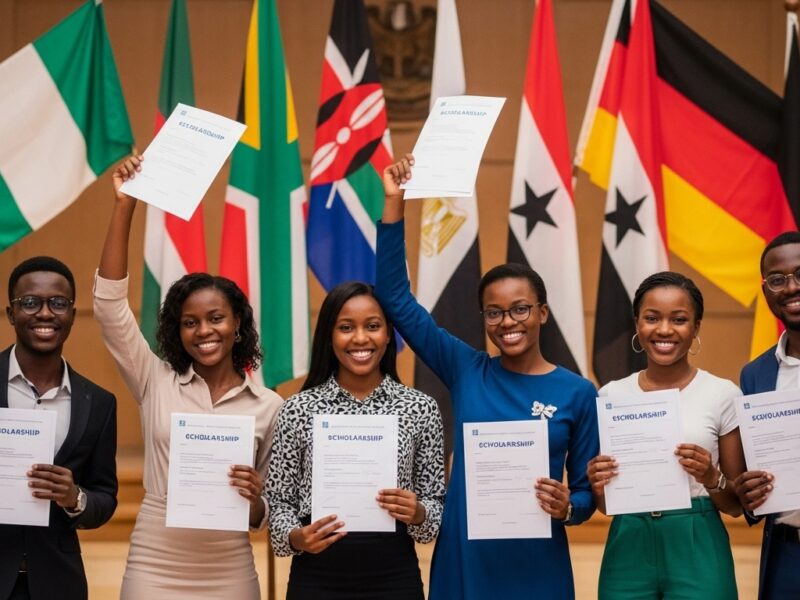
When students think about scholarships, their minds often leap toward big global names — Chevening, Fulbright, or Rhodes. While those are valuable opportunities, a significant number of African students overlook a powerful and often more accessible category: government and regional scholarships.
These scholarships, offered by African governments, regional education bodies, and international partners like Germany’s DAAD, often provide financial support and training that is just as competitive and valuable as global programs. More importantly, they are tailored to the specific development needs of the regions they serve — making them uniquely positioned to empower future leaders on the continent.
This guide explores prominent regional and government-backed scholarships that African students can apply for in 2025, and how to approach them strategically.
What Are Regional & Government Scholarships?
These scholarships are funded or facilitated by:
- National governments (e.g., South Africa’s NSFAS, Ghana Scholarship Secretariat)
- Regional organizations (e.g., African Union, East African Community, ECOWAS)
- International bilateral partners (e.g., Germany’s DAAD, China-Africa Friendship Programs)
- Public universities with government backing or partnerships
They often focus on:
- Advancing specific sectors (STEM, agriculture, public health)
- Encouraging intra-African academic mobility
- Developing workforce capacity
- Strengthening regional collaboration
Unlike private foundation scholarships, these programs typically come with service conditions, national development goals, or obligations to return home after studies — and that’s not a bad thing.
Top Government and Regional Scholarship Programs for African Students
1. DAAD Scholarships (Germany)
- Type: Government-funded (German Academic Exchange Service)
- Eligible Regions: Most African countries
- Degree Levels: Postgraduate (Master’s and PhD)
- Coverage: Full tuition, monthly stipends, travel allowance, health insurance, language course
Overview:
DAAD remains one of the most prestigious and well-structured scholarship providers for African students. The program supports development-focused postgraduate studies in Germany, particularly for students in fields such as public policy, economics, education, and environmental sciences.
Strategic Advantage:
DAAD emphasizes candidates with a demonstrated commitment to sustainable development and who plan to return home and apply their knowledge.
Pro Tip:
Check out the “Development-Related Postgraduate Courses (EPOS)” for priority fields. Applications are often made directly to participating German universities.
2. NSFAS (National Student Financial Aid Scheme) – South Africa
- Type: Government financial aid
- Eligible Regions: South Africa (citizens only)
- Degree Levels: Undergraduate
- Coverage: Tuition, books, accommodation, food, transport, allowances
Overview:
NSFAS funds academically deserving but financially disadvantaged South African students attending public universities and TVET colleges. It is not a traditional “merit scholarship” but rather a means-tested support program.
Mentorship & Support:
Students supported by NSFAS gain access to university-based academic advising, skills development workshops, and tutoring.
Pro Tip:
This is only open to South African citizens, but other African countries have similar national support programs (see below). For example, Kenya’s Higher Education Loans Board (HELB) and Ghana’s Scholarship Secretariat.
3. African Union Scholarships (Pan-African University)
- Type: African Union-backed postgraduate scholarships
- Eligible Regions: All African Union member states
- Degree Levels: Master’s and PhD
- Coverage: Tuition, living allowance, travel, insurance
Overview:
The Pan-African University (PAU) is an African Union initiative offering fully funded master’s and doctoral programs across campuses in Nigeria, Kenya, Cameroon, and Algeria — each specializing in key fields like water sciences, governance, and energy.
Why It Matters:
This is one of the few intra-Africa mobility-focused programs that actively cultivates African unity through academia.
Pro Tip:
PAU places a high emphasis on gender equity and regional representation, so female applicants and students from underrepresented countries are highly encouraged to apply.
4. ECOWAS Scholarships
- Type: Regional economic community funding
- Eligible Regions: West African countries (ECOWAS member states)
- Degree Levels: Primarily postgraduate and technical training
- Coverage: Partial or full funding, depending on program
Overview:
ECOWAS supports specialized training and graduate education to address regional priorities like agriculture, cybersecurity, healthcare, and governance. The scholarships are usually administered via national ministries or ECOWAS-backed institutions.
Pro Tip:
These opportunities can be harder to track — always monitor your Ministry of Education’s announcements and the ECOWAS official website.
5. Commonwealth Scholarships (UK-funded, with African quotas)
- Type: Government/foreign affairs-based
- Eligible Regions: Commonwealth countries (many African nations qualify)
- Degree Levels: Master’s and PhD
- Coverage: Full tuition, travel, stipend, research support
Overview:
These UK-funded scholarships are designed to benefit students from low- and middle-income Commonwealth countries who would otherwise be unable to study in the UK.
Mentorship & Professional Networks:
Commonwealth Scholars become part of an active alumni network and are offered leadership workshops and research funding opportunities.
6. National Government Scholarships
Virtually every African country has some form of national government scholarship or financial support scheme, although their visibility and accessibility vary widely.
Examples include:
- Kenya: Higher Education Loans Board (HELB) and Ministry of Education postgraduate scholarships
- Ghana: Ghana Scholarship Secretariat — local and international study support
- Nigeria: Federal Government Bilateral Education Agreements (BEA) and PTDF (Petroleum Technology Development Fund)
- Uganda: Ministry of Education internal merit-based awards
What to Expect:
These programs often require:
- High academic performance
- Proof of financial need
- Commitment to work within the country post-graduation
How to Find and Apply for These Opportunities
Let’s be honest — these scholarships are often buried under 27 pages of poorly designed government websites, or announced on radio stations and not updated anywhere online. That’s the reality. So you have to be proactive.
1. Start With Official Sources
- Ministry of Education websites
- Embassy or High Commission websites (for bilateral programs)
- Regional university bulletin boards
2. Track via Scholarship Aggregators
Sites like:
- scholarshipset.com
- opportunitiesforafricans.com
- afterschoolafrica.com
Often publish announcements for government-funded programs with clearer application instructions.
3. Leverage University International Offices
If you’re applying to a public university, reach out to their financial aid or international office. They often have the inside scoop on regionally funded or partner scholarships.
Advantages of Government & Regional Scholarships
- Accessibility: Often open to a wider range of students with varying academic backgrounds
- Relevance: Designed around national development priorities
- Prestige within local context: Recognized by public institutions and employers
- Lower competition (sometimes): Less global awareness = fewer applicants
- Community Ties: Emphasize giving back and leading at home, not just abroad
Challenges to Prepare For
- Bureaucracy: Expect paperwork, stamps, and waiting
- Service Requirements: Some programs require you to return and work in specific sectors
- Lack of Transparency: Some programs aren’t consistently advertised or well-publicized
- Limited Flexibility: Scholarships may only apply to local or regional universities
But these challenges can be managed with persistence, planning, and — let’s be honest — a very good folder system.
Conclusion: Think Regionally, Act Strategically
If your scholarship strategy involves only the most famous global names, you’re likely missing out on robust, well-funded programs that are closer to home — and often better aligned with your values and long-term goals.
Government and regional scholarships are not a fallback. They are a powerful, mission-driven way to get your education funded while staying connected to Africa’s development.
The key is to start early, look locally, and ask questions. Opportunity might not always knock — sometimes you have to dig it out of a dusty ministry PDF. But when you do, it’s worth it.


